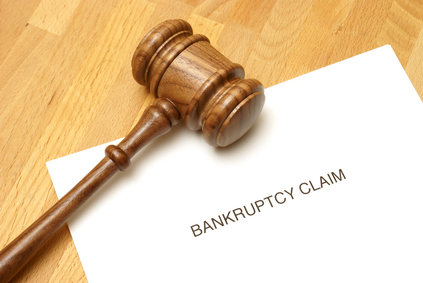 One of our lender clients, a New York City-based Federal Credit Union, came to us with a dilemma.
One of our lender clients, a New York City-based Federal Credit Union, came to us with a dilemma.
It seems the credit union was not receiving post-petition mortgage payments from its borrower, a chapter 13 debtor. Nor was the client receiving distribution payments from the debtor’s chapter 13 trustee. The lender had relied upon foreclosure counsel to handle the chapter 13 filing. Unfortunately, foreclosure counsel, not familiar with chapter 13 practice, only filed a Notice of Appearance and nothing else, not even a proof of claim.
Weltman & Moskowitz, LLP was asked to review the matter. Upon reviewing the electronic docket and relevant source documents, we discovered that due to prior counsel’s failure to file a proof of claim, the debtor’s confirmed plan would not fully pay the credit union’s pre-petition arrears. The difference between the plan and the actual amount was more than $15,000, which the debtor could not afford. The credit union engaged Weltman & Moskowitz, LLP, a New York and New Jersey creditor’s rights law firm, to obtain stay relief or to have the case dismissed so the credit union could complete its foreclosure sale.
We filed the proof of claim and contacted both the debtor’s attorney and chapter 13 trustee to determine the best course given the debtor’s deficient plan and payment defaults. Ultimately, the chapter 13 trustee moved for dismissal. When the debtor filed a second chapter 13 petition on the eve of the rescheduled foreclosure sale, the credit union turned to Weltman & Moskowitz, LLP for immediate action. Because a chapter 13 petition was refiled within one year of the prior case dismissal, it was up to the debtor to seek to reimpose the automatic stay.
The debtor filed the appropriate motion and Weltman & Moskowitz, LLP, on behalf of the credit union, challenged the application, demonstrating the futility of the debtor’s plan. After providing the debtor an opportunity to supplement his financial disclosures, the bankruptcy judge agreed and denied relief to the debtor. The court authorized the lender to complete its foreclosure sale, which has since been accomplished.
The takeaway for lenders: make certain experienced bankruptcy counsel is in place when a borrower files for bankruptcy relief to stop a foreclosure sale. While some foreclosure attorneys may be familiar with bankruptcy proceedings, they may not understand bankruptcy practice. As a bankruptcy and creditor’s rights law firm, Weltman & Moskowitz, LLP routinely assists lenders when foreclosures turn into bankruptcies.
If you deal with delinquent borrowers, make sure your team has considered all the angles and has experienced bankruptcy lawyers review the file and the particulars of the delinquency. Call or email Richard E. Weltman or Michael L. Moskowitz to learn what could be done to improve the lender’s recovery position.
About Weltman & Moskowitz, LLP, a New York and New Jersey Bankruptcy and Creditors’ Rights Law Firm:
Michael L. Moskowitz and Richard E. Weltman are co-founders of Weltman & Moskowitz, LLP, a business law firm serving New York, New Jersey and Long Island. They concentrate on creditor’s rights, bankruptcy, commercial litigation, business divorce, partnership dissolution, and alternate dispute resolution, as well as on limited liability companies and corporations, including counseling, structure, governance, and preparing and negotiating many types of secured lending, leasing, shareholder, buy-sell, technology, and joint venture agreements. Michael or Richard may be reached at 212.684.7800 or 201.794.7500 and at mlm@weltmosk.com or rew@weltmosk.com.







